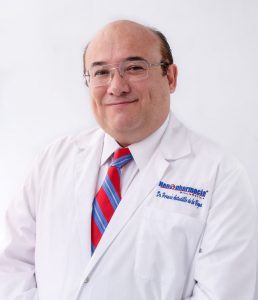By Zoilo Carrillo
Mexico City, Feb 5 (EFE).- The fight against cancer is medicine’s greatest challenge and requires a rapid transition from traditional diagnoses to a personalization that depends on molecular genetic testing, Horacio Astudillo, a molecular oncology and genomics expert, told EFE.
“Medical systems worldwide are already overcome by their traditional forms of patient care,” something that takes no less than two years to be able, through the observation of genetic mutation, to increase the precision of the treatment and hopes of saving a life.
This Monday is World Cancer Day, which aims to raise awareness about a disease that continues to multiply and, according to the World Health Organization (WHO), takes the lives of 1.3 million patients a year in the Americas alone.

According to Astudillo, “public health systems are working with obsolete hospital treatments,” since they receive patients when they are “seriously, very seriously ill, and with symptoms,” something that, given the fact that people are living longer and the population is aging, simply must be changed.
“For many illnesses it can be useful, but in a complex, chronically degenerative illness like cancer, it’s the least effective and least functional,” he said.
Cancer is different and traditional medicines don’t offer better alternatives than “a prefabricated guide to medications that are alternated one after another as long as the patient can take them.”
The more than 15 percent rise in the number of new cancer cases every year obliges a quicker transition to a new kind of diagnosis, and molecular genetic testing allows doctors to get ahead of the illness and provide an earlier treatment, since 20 percent of neoplasties show the disease is due to genetic composition.
The idea is to establish a prevention model starting with personalized treatments as soon as the DNA analysis is made, which tends to take a maximum of 7 days.
These personalized tests track certain gene mutations that activate the disease and, once found, indicate the use of certain biotechnological medications that are highly specific for getting the best results in the fight against cancer.
“There is a genetic alteration of some of those genes that automatically turns them into genes that control the patient’s cancer,” so that it’s possible to decide on “the exact medication for the patient’s kind of genetic alteration,” the specialist said.
